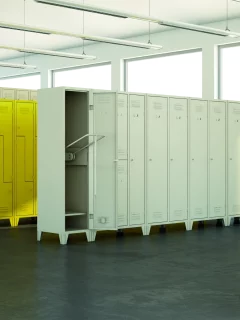The supply chains have become complex and interconnected, requiring a strategic and informed approach to optimise their management.
This article will explore the definition of supply chain, its stages main stages, and the risks and opportunities arising from them, offering insights relevant to understanding this dynamic environment.
What is the supply chain?
The supply chain represents the set of processes and activities necessary to take a product from from the supplier to the end consumer. This complex network links suppliers, manufacturers, and distributors, ensuring a constant flow of materials and finished products.
In a world that prizes speed, efficiency and transparency, a thorough understanding of how the supply chain works is important for any company that aims to optimise its processes and meet market expectations.
What are the stages of the supply chain?
The supply chain consists of several key stages, each of which presents unique challenges:
- SourcingThe selection and management of suppliers to ensure the acquisition of quality raw materials;
- ProductionProduction: the transformation of raw materials into finished products that requires efficient and well-coordinated processes;
- DistributionDistribution : the distribution of finished products to consumers, which requires sophisticated logistics to minimise delivery times and costs;
- Information management: the collection and analysis of data to continuously monitor and improve supply chain efficiency.
Each step is essential to ensure that the supply chain functions harmoniously and effectively, reducing costs and improving overall operations.
The main risks in supply chain management
Managing a supply chain means having to deal with numerous risks such as:
- Logistical disruptionsUnforeseen events can block or significantly slow down the flow of products.
- Price volatilityFluctuations in the cost of raw materials can impact profit margins.
- Lack of transparencyWithout clear visibility into all stages of the supply chain, it is difficult to ensure the efficiency and safety of operations.
- Sustainability issuesPressures to reduce environmental impact require the adoption of more sustainable practices.
Supply chain sustainability: a competitive advantage
The sustainability has evolved from an ethical objective to a real competitive advantage in the context of the modern supply chain. Adopt sustainable logistics strategies and form strategic partnerships can significantly improve a company’s environmental impact.
Sustainable supply chain management not only helps reduce operating operating costsbut also improves the corporate reputation. Today’s consumers are increasingly aware of environmental issues and tend to prefer companies that demonstrate a concrete commitment to sustainability.
Furthermore, an ecologically responsible supply chain can increase the customer involvementcreating a deeper and more trusting connection. Implement sustainable practices therefore proves to be a distinctive element that can attract new customers and retain existing ones, providing a market advantage.
RAJA logistics solutions to improve supply chain management
RAJA offers a wide range of innovative solutions that support partners in optimal supply chain management.
Among these solutions are stackable containers which maximise space efficiency and for large volumes the taping machineswhich speed up the preparation of shipments by reducing packaging time.
In addition, RAJA provides environmentally friendly packaging such as recycled and biodegradable boxes, which support companies in their journey towards sustainability and compliance with ESG objectives. These solutions demonstrate how RAJA can be a strategic partner for large Italian companies, helping to transform their supply chain into a sustainable competitive advantage.














